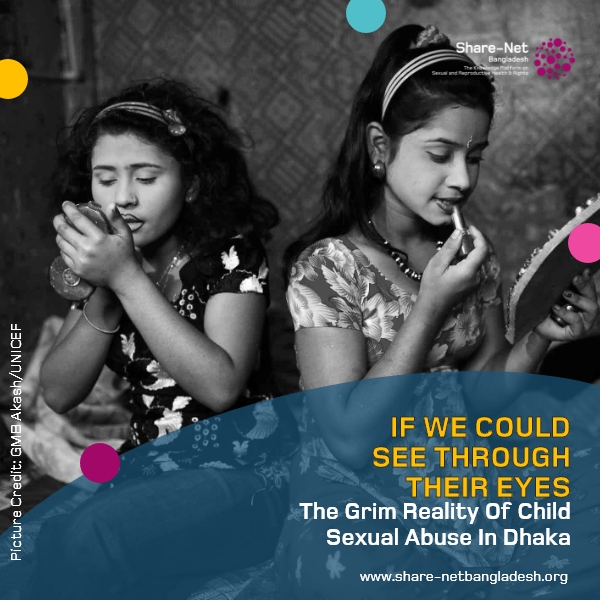If We Could See Through Their Eyes: The Grim Reality of Child Sexual Exploitation in Dhaka
In Dhaka, Bangladesh, the silent suffering of thousands of young girls trapped in commercial sexual exploitation (CSEC) is a reality that demands urgent attention. A recent study conducted by the Freedom Fund and Population Council in Bangladesh has uncovered harrowing statistics: an estimated 22.2% of street-based and 21.9% of brothel-based female sex workers in Dhaka are minors, translating to roughly 5,700 girls under 18 being exploited in these settings.
The drivers behind this exploitation are complex and multifaceted. For most girls, poverty is the primary force pushing them into CSEC. A staggering 80.1% of survivors cited the need for money to survive as the reason for their involvement. Tragically, many face coercion and violence; over half reported that refusal to participate in CSEC would lead to severe consequences, including physical, sexual, or emotional abuse.
The frequency and intensity of exploitation are shocking. On average, survivors reported being forced to engage with 24.5 perpetrators per week, with brothel-based survivors encountering as many as 44. These numbers reflect the extreme vulnerability and lack of control that these girls experience daily. The trauma extends beyond the physical; nearly 60% of survivors described living under constant control, and almost half were forced to work in conditions they never agreed to.
This study highlights the critical need for immediate and effective intervention. Protecting girls from sexual exploitation is not just a moral imperative but also a key component of broader sexual and reproductive health and rights (SRHR) issues in Bangladesh.
The findings underscore the importance of collaboration among policymakers, local government, law enforcement, and civil society organisations (CSOs). These groups must work together to prevent CSEC, support survivors, and shift societal attitudes toward exploitation.
Moreover, there is an urgent need to strengthen the financial resilience of vulnerable families, especially those of female sex workers. Ensuring that mothers are not forced to send their daughters into the sex trade due to economic hardship is crucial. Rehabilitation and reintegration support for survivors must also be prioritised, with a focus on enforcing existing laws and enhancing protection mechanisms.
In the fight against CSEC, every effort counts. By addressing the root causes and supporting those most at risk, Bangladesh can begin to dismantle the structures that allow such exploitation to thrive. This requires a collective commitment to safeguarding the rights and well-being of every girl in Dhaka.
Source: Freedom Fund
Picture Credit: GMB Akash/UNICEF

